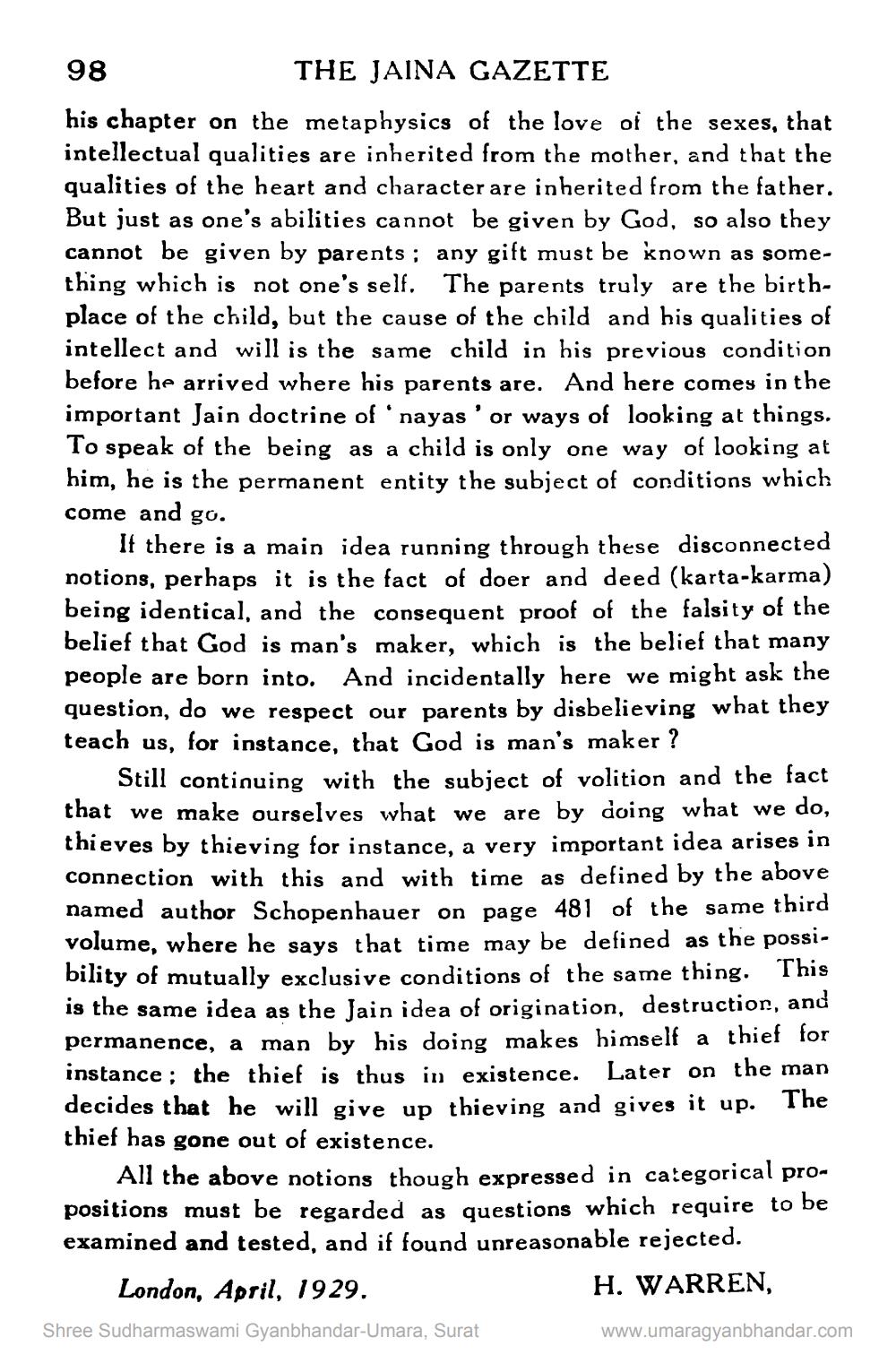________________
98
THE JAINA GAZETTE his chapter on the metaphysics of the love of the sexes, that intellectual qualities are inherited from the mother, and that the qualities of the heart and character are inherited from the father. But just as one's abilities cannot be given by God, so also they cannot be given by parents; any gift must be known as something which is not one's self. The parents truly are the birthplace of the child, but the cause of the child and his qualities of intellect and will is the same child in his previous condition before he arrived where his parents are. And here comes in the important Jain doctrine of .nayas' or ways of looking at things. To speak of the being as a child is only one way of looking at him, he is the permanent entity the subject of conditions which come and go.
If there is a main idea running through these disconnected notions, perhaps it is the fact of doer and deed (karta-karma) being identical, and the consequent proof of the falsity of the belief that God is man's maker, which is the belief that many people are born into. And incidentally here we might ask the question, do we respect our parents by disbelieving what they teach us, for instance, that God is man's maker ?
Still continuing with the subject of volition and the fact that we make ourselves what we are by doing what we do, thieves by thieving for instance, a very important idea arises in connection with this and with time as defined by the above named author Schopenhauer on page 481 of the same third volume, where he says that time may be defined as the possibility of mutually exclusive conditions of the same thing. This is the same idea as the Jain idea of origination, destruction, and permanence, a man by his doing makes himself a thief for instance; the thief is thus in existence. Later on the man decides that he will give up thieving and gives it up. The thief has gone out of existence.
All the above notions though expressed in categorical propositions must be regarded as questions which require to be examined and tested, and if found unreasonable rejected. London, April, 1929.
H. WARREN, Shree Sudharmaswami Gyanbhandar-Umara, Surat
www.umaragyanbhandar.com




